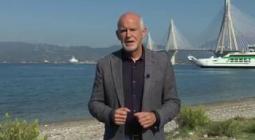University of Bath to offer climate change education for all new students

Over 5,000 students will have the opportunity to learn about the carbon intensity involved in everyday activities, such as travel, energy use and food consumption.
University students at Bath will be able to learn how they can reduce their own carbon emissions, as well as learning how organisations and systems can reduce their emissions too.
Students could earn a Carbon Literacy certification if they complete the follow-up training with The Carbon Literacy Project.
Dr Steve Cayzer, Climate Action Learning & Teaching Liaison at the University, said: “This is part of the University of Bath’s whole-institution response to the climate emergency. We know that this is an issue that students care about passionately and is something that will have a bearing on the rest of their lives.“
“By introducing Carbon Literacy right at the start of the University experience we begin to get people into that mindset and thinking straight away, as well as helping them develop knowledge and skills that will be valuable throughout their lives.”
This initiative is part of the University’s Climate Action Framework, committed to achieving a series of climate goals, including offering students’ education on climate change, and achieving total carbon neutrality by 2040.
Elsa Swetenham is a Natural Sciences student who took the course as part of the pilot last year. She said: “The Carbon Literacy course was a great way for me to get thinking about what problems the world is facing in terms of the climate crisis and how Bath is responding to these challenges. It really inspired me to find out what the university is doing and how I could personally get involved in climate action at the University.”
Emma Richards, Project Leader at The Carbon Literacy Project, said: “Carbon Literacy is a core competency in the workplace, much like health and safety, so by increasing access to Carbon Literacy whilst at university, students like those at Bath will be much better equipped for entering a zero-carbon workforce.”
28 September 2021
EcoWatch





